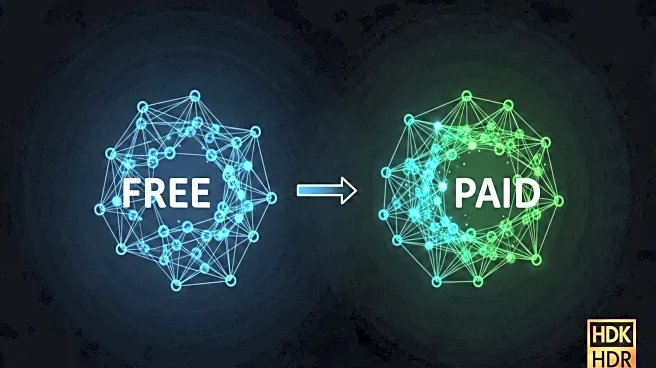What's Happening?
The Multi-State Information Sharing and Analysis Center (MS-ISAC) is transitioning from a free to a paid membership model for state, local, tribal, and territorial governments. This change is due to significant decreases in federal funding, which previously supported MS-ISAC's cybersecurity services. The Center for Internet Security has temporarily covered costs since March, but this support will end without paid memberships. MS-ISAC provides threat intelligence, cybersecurity tools, and collaborative information sharing, serving over 18,000 government entities. The shift aims to create a sustainable, member-driven approach to ensure continued access to these services, with membership dues tiered based on entity size.
Why It's Important?
The transition to a paid membership model for MS-ISAC reflects broader challenges in funding cybersecurity initiatives for government entities. The move may impact under-resourced organizations that rely on MS-ISAC's services but may struggle to afford membership fees. This shift underscores the importance of securing sustainable funding for cybersecurity efforts, particularly as cyber threats continue to evolve. The change may prompt discussions on the role of federal funding in supporting cybersecurity infrastructure and the need for collaborative efforts to protect critical services. The situation highlights the potential impact on government operations and public safety if cybersecurity resources become less accessible.
What's Next?
As MS-ISAC transitions to a paid model, government entities may need to assess their cybersecurity budgets and prioritize funding for essential services. The shift may lead to increased advocacy for additional funding to support cybersecurity initiatives at the state and local levels. Stakeholders, including government leaders and cybersecurity experts, may push for reforms to ensure that critical services remain accessible to all entities, regardless of size or resources. The situation may also influence discussions on the future of cybersecurity funding and the role of collaborative networks like MS-ISAC in protecting government operations.
Beyond the Headlines
The broader implications of MS-ISAC's funding shift extend to ethical and operational concerns within cybersecurity management. The transition highlights the challenges of maintaining cybersecurity infrastructure amid funding cuts and the potential impact on public safety. The situation raises questions about accountability and the prioritization of cybersecurity in government decisions. Long-term shifts in cybersecurity funding practices may be necessary to address these issues and ensure that government entities can effectively protect critical services.









